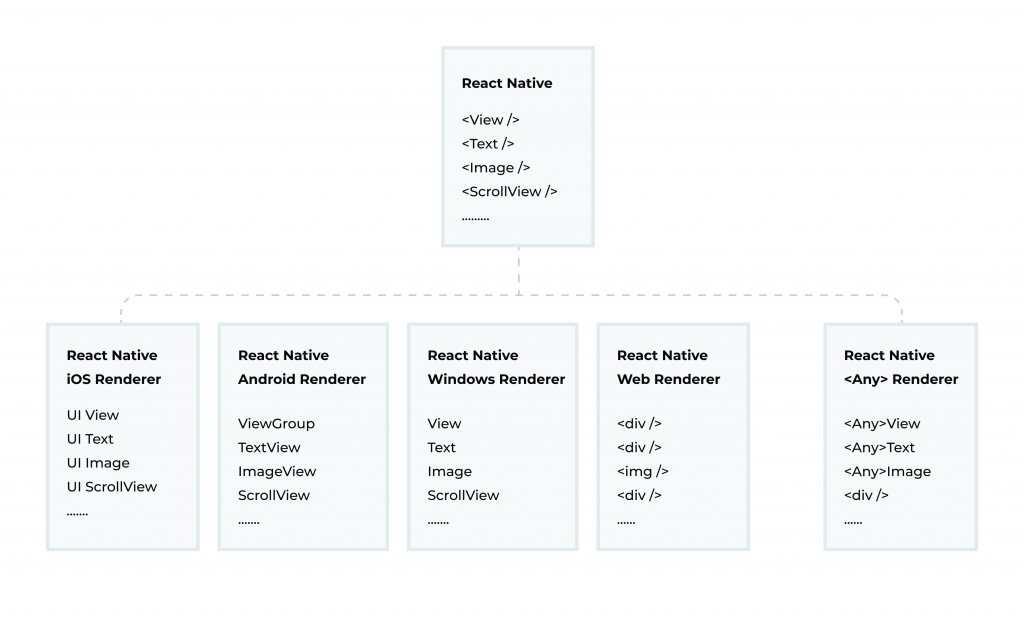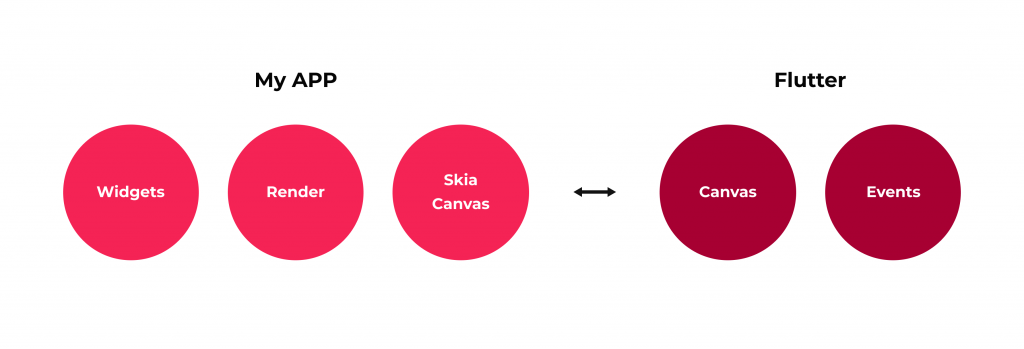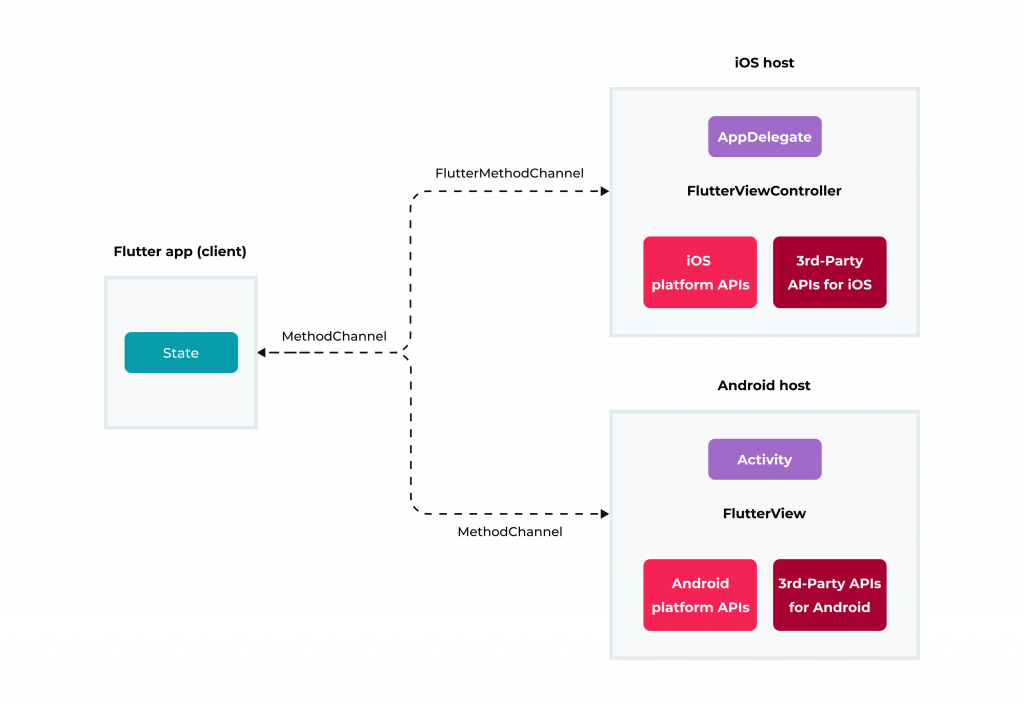Why you should be interested in Flutter app development? The days of waiting in never-ending lines to see your doctor are nearing their end, thanks to the growing number of healthcare mobile applications. Smartphones are ubiquitous, nearly everybody has one these days, and it opens much-needed possibilities for the further development of mobile healthcare. Accessibility to healthcare makes considerable changes to the quality of life for millions of patients, and thus it is essential to deliver quality healthcare services through different media.
According to GlobeNewswire, the global mobile health market is expected to grow from $83 billion in 2022 to $250 billion by 2026 at a compound annual growth rate of 31,53%. But how do you capitalize on the healthcare trends and develop healthcare mobile applications that help save lives and make some bang for your buck? You need to build your application fast, make it stable, troubleshoot immediately, and make the whole process cost-efficient. That is where the Flutter app development comes into play.
Let’s see why Flutter app development in healthcare is faster, simpler, and more cost-efficient.
Table of Contents
How Does Flutter App Development Help in Healthcare?
One of the most common problems in developing healthcare mobile apps is that it takes a lot of time to create the same application for different platforms. Let’s say you need to build a mobile application that runs on iOS, Android, and Windows. It would help if you spent additional time coding the application to run on all those platforms. You would need to spend even more time to make it fit different screen sizes. That would take a considerable amount of time and investment.
Flutter app development solves this problem. It is a cross-platform software development kit that allows developers to launch apps for different operating systems and screen sizes faster. Of course, it is not the only cross-platform kit; others are out there. But! It has several features that distinguish it from most development kits allowing you to develop faster and cost-efficiently.
Same Business Logic and UI on All Platforms
Most cross-platform development kits have in common that you can share the codebase between different platforms. So, if you have dealt with iOS development in healthcare, you could use the same codebase with the slightest changes to port your application to Android. But only Flutter app development lets you share both UI code and UI itself.
Here is how most cross-platform frameworks deal with UI rendering:

Let’s be clear: such a rendering process has its perks and is relatively efficient too, and your applications would look and feel native on whichever platform you port them to. However, if you rely too much on platform-specific components for rendering, you would face the problem of a property mapping layer for each platform widget and data synchronization with a framework widget. You will have to map every animation into platform-specific widgets. The devil is always in the details; thus, you will have to spend additional time on platform-framework synchronization.
Flutter app development, in turn, does not rely on any platform-specific components to render the UI. All it needs is a canvas to draw on:

The simplicity of rendering offered by Flutter app development ensures UI consistency on whichever platform you choose. Sharing the UI and business logic becomes seamless, which helps you cut the time and cost of development. It also makes it easier for healthcare practitioners to use the Flutter medical app you developed on different platforms and screen-sized devices.
Reduced Time-to-Market
Flutter app development is much faster than most of its alternatives. You can expect to develop healthcare mobile apps two times faster than developing two apps for Android and iOS separately. The reason is as simple as it gets: you do not need to write a platform-specific code, adjust the UI, play around with widgets, and tune the business logic to fit different platforms. Any 2D UI can be implemented based on the same code without interaction with native application counterparts.
So, if you develop healthcare iOS apps on Flutter, you spend time and money only once. You create that one native app, and that is it – you can then move it to any other platform seamlessly. Any visual adjustments will happen quickly with just a couple of twitches, so you cover all the possible screen sizes too.
Native-like App Performance
The performance of your application is essential for a quality user experience. It is especially critical for healthcare mobile apps, the performance of which might influence the quality of care delivered to the clients. The performance of Flutter app development is nearly indistinguishable from the native apps.
Any complex UI elements work smoothly as the Flutter applications are built directly into the machine code. That eliminates any performance bugs and lags during the interpretation process. You can launch the Flutter app development on any platform, and they will look and feel native.
Simple Logic Implementation
Apart from the UI discussed above, many applications rely on advanced operating system-level features, such as connectivity protocols, GPS coordinates, access control, and security features. Most of these are readily available with Flutter app development via special plugins.
Naturally, not all the possible features on the OS level are readily available. That is where your team of Flutter app development comes into play. Experienced developers can establish communication via platform channels. These channels allow you to implement any native app’s logic on the Flutter app. Here is how it works:

Not Just Mobile
You can go beyond mobile development with Flutter. You can use Web and Desktop Embeddings by Flutter that allow the users to run Flutter apps in a browser without changing the source code. What this means for you is that you can make applications and MedTech websites all at once. Additionally, Flutter app development expands its functionality to desktop apps, allowing you to develop applications that run on laptops and PCs.
It is a significant development that makes Flutter a real cross-platform development toolkit. It is worth noting that Web and Desktop Embeddings are not yet fully market-ready, but it is only a matter of time. Soon, developers will be able to create applications for most types of modern devices and operating systems without having to change the code.
As you see, Flutter makes developing high-quality cross-platform healthcare mobile apps less painstaking. With the patients becoming more accustomed to remote care and telehealth applications, the trend is clear – developing a Flutter medical app will most likely turn out to be a good investment.
With the benefits of Flutter app development out of the way, you might wonder what makes the development of healthcare applications a lucrative venue.
Healthcare Mobile App Trends and their Benefit for the Industry
With the spread of mobile phones and the increased number of people working from home and ordering most online services, it is only natural that healthcare becomes one of such services. Remote access to healthcare services is not the only trend shaping the modern healthcare industry. There are numerous factors contributing to the growing popularity of mobile healthcare apps.
Access to Quality Care for Remote Patients
In this digital age, high-speed internet connections and smartphones are much more ubiquitous than clinics. It means that the residents of remote rural areas where they do not have access to quality medical care can now at least schedule a video call with the doctor, have a chat, and get prescriptions based on their conditions.
That would not be the case for the patients who require emergency care, but it is undoubtedly better than nothing. Having the opportunity to at least chat with a trained healthcare practitioner, describe your problems, and receive prescriptions might have a positive impact on the patient’s longevity.
Reduced Change of Misdiagnosis
Modern healthcare solutions can be expanded upon via the use of advanced technologies such as AI and machine learning. The developers can teach the software to recognize specific patterns in a patient’s condition and make a preliminary diagnosis based on these findings. It is too early for us to entrust our health to machines completely, but they can already make valid predictions on treatment effects in a physician-controlled environment.
It means that with the Flutter app development, patients can fill in the blanks with their symptoms, and the physicians would already get an initial idea of what kind of illness could be bothering the patient.
Keep Track of Patient’s Health
With the growing popularity of fitness trackers and other wearables, patients can monitor their condition on their own. Using healthcare mobile apps that are connected to their wearables, patients will be able to receive notifications or alerts based on their condition.
For instance, they might receive alerts if their heart rate gets dangerously high, their blood sugar reaches a dangerous level, or any other health metrics go off. Additionally, doctors might receive notifications about patients encountering complex health problems in real time. Such technologies might improve the quality of life of patients who require regular medical attention and even save their lives in some extreme cases.
Convenient Electronic Health Record Management
For healthcare practitioners, electronic health records (EHR) have become an integral part of their daily routine. It provides physicians with all the information regarding a particular patient and allows them to update the data, view the patient’s history, and share it with other experts. However, a poorly executed EHR might be a headache as a good EHR is a lifesaver.
A good EHR solution can save hours for the doctors daily, improve the quality of cooperation with the patients, enhance healthcare services, and promote digital literacy among the clinical staff.
Physicians rely on quality healthcare software, and the better it is, the better care they provide to the patients. If you are in the business of developing healthcare applications or MedTech websites, it is crucial to do the job right. That is why you will need a reliable team of experts who can create high-quality healthcare solutions for all types of devices that might be used in a clinical environment.
Affordability and Profitability of Care
Depending on your location, even a single trip to the doctor’s office might blow a hole in people’s pockets – hospital bills can be cruel in certain countries. With the growth of online care delivered through mobile applications, patients can meet their doctors through a video call, which would be much cheaper than an official appointment. In most cases, doctors do such video calls as a side hustle, so they can charge whatever sum they want without hospital bills.
Such applications, thus, grow extremely popular among physicians who can make some money on the side and patients who can save considerable amounts of money without having to go to the hospital. That creates a mutually beneficial network of connections between physicians and patients.
The benefits of healthcare mobile applications are immense, and their role in the overall picture will only grow more prominent. It might be too late to become an entrant in that market, but there is still enough room for growth, and the competition only starts to spin its wheels. Developers who come up with the best software solutions that improve the quality of care will surely come up on top of the curve. So you must partner with a partner who can help you build an exceptional application.
Final Thoughts
Massive changes are happening in the healthcare business. The rapid development and spreading of mobile devices alone are enough to change the technological landscape in the healthcare industry. Put the pandemic and the popularity of remote services on top of that, and you will see the mobile healthcare market growing by more than 30% each year.
To develop your best healthcare mobile app, you need both reliable tools and a strong technology partner at your side. Flutter app development might be your toolkit to develop healthcare iOS apps and port them seamlessly to other platforms. SPsoft, in turn, is the partner who can take your idea for the perfect application to the next level and turn it into a successful product.



